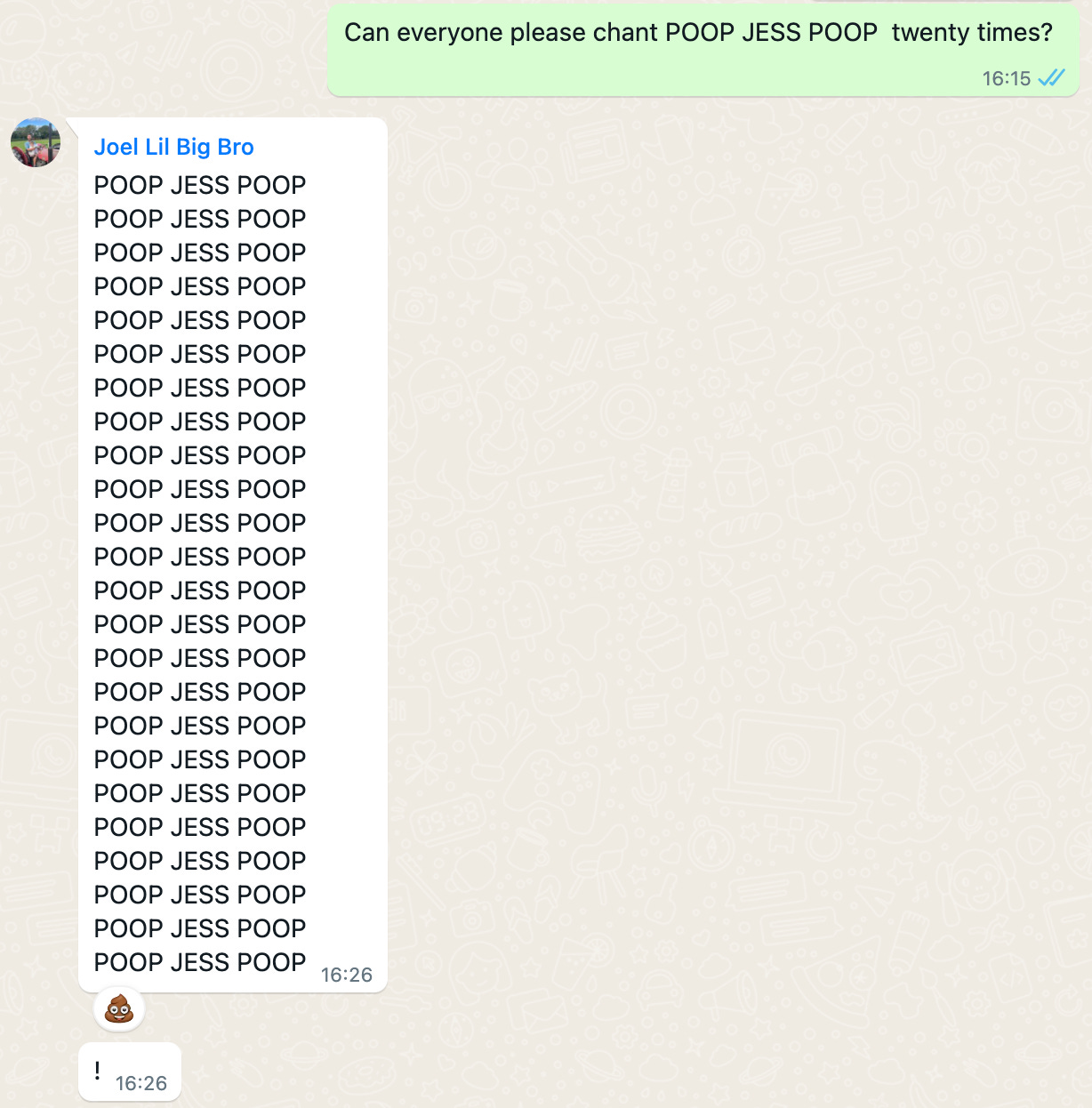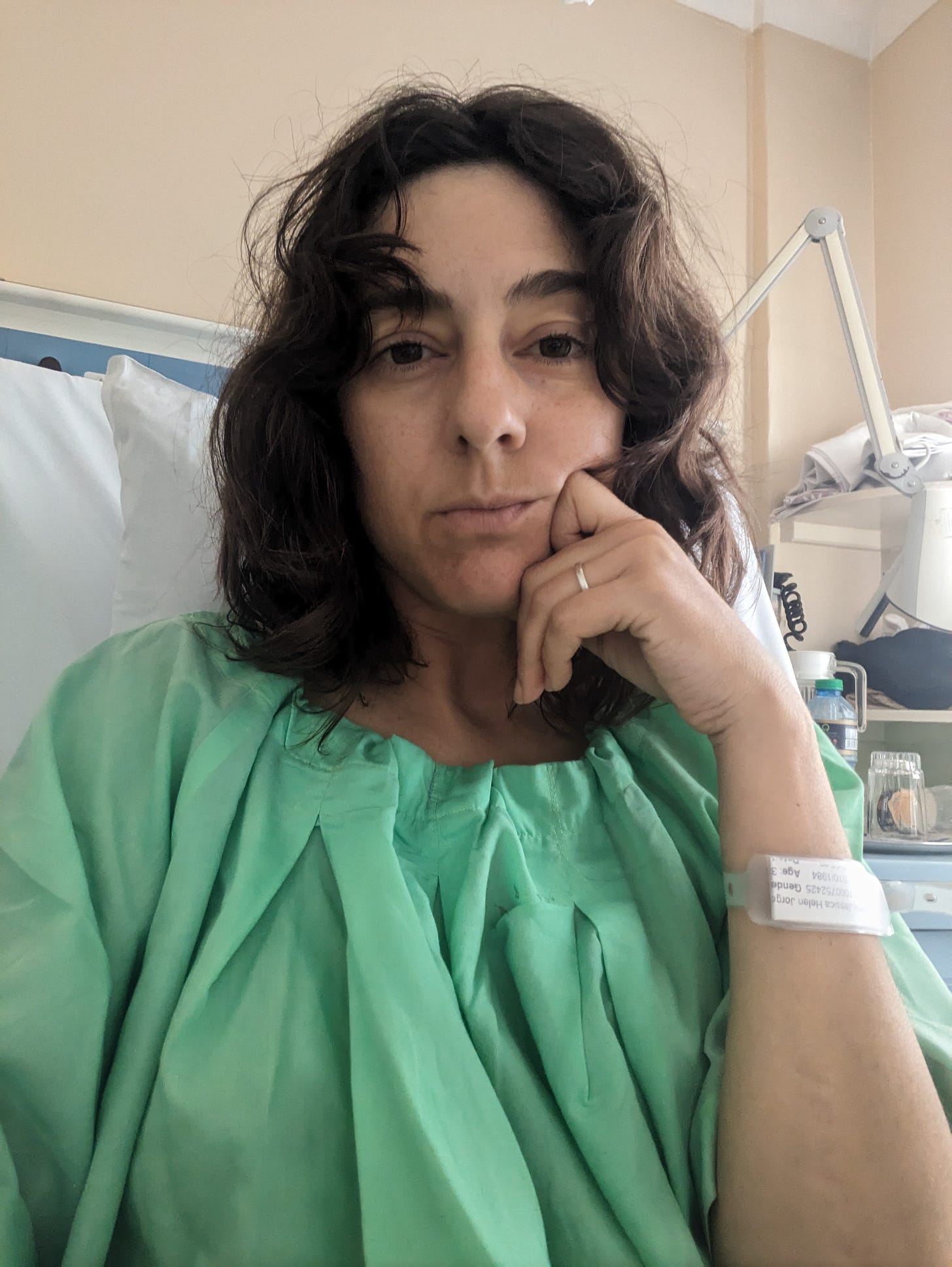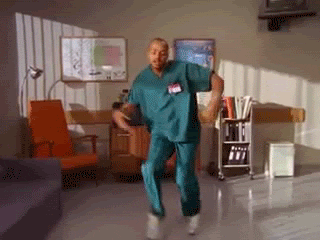#Diary: Running with Malaria chapter 3 - Resilience
Therapeutic account of a six-week pause in Running with Mushrooms
November in Nairobi saw me curled up in foetal position, in and out of hospital with severe malaria. This is chapter 3 of a therapeutic diary of that time. It’s long and I don’t expect you to read it.
If you’re curious, it’s an honest account of life on hold while a lot happens and a lot is learned. Check out chapters 1 and 2 before reading this one:
CHAPTER 1 | CHAPTER 2 | CHAPTER 4
We’re home in London now and I’m much better so it’s back to work! You can expect a new Running with Mushrooms article or podcast every couple of weeks(ish)
Mush love, Jess ✌️
Resilience
Reading time: 10 mins
Location: Nairobi Hospital
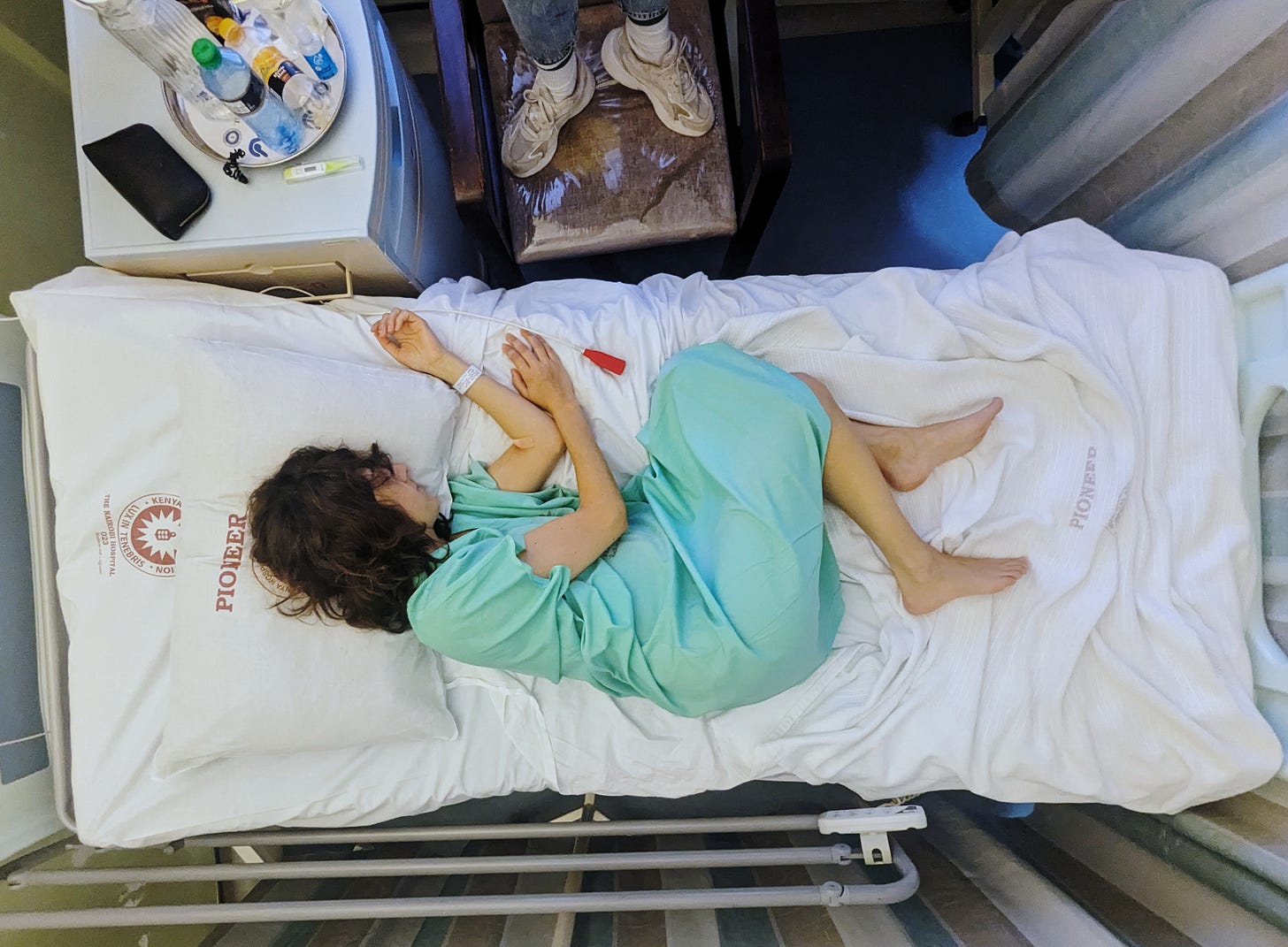
Saturday 18 November
Malaria kills
Without enough oxygen, I’m extremely tired and weak. My jaundice is now a corncob-yellow. Breathing is difficult and I’m out of breath. My heartbeat is rapid and erratic. I’m dizzy and lightheaded. My feet and hands are cold but my body sweats and burns. The fucking headache is back.
Severe malaria attacks your body in three potentially fatal ways. Attack to the brain leads to cerebral malaria; attack to the kidneys brings on acute renal failure; attack to the blood severe hemolytic anaemia.
In today’s daily medical lowdown, Prof Chunge commended me on being a good patient: keeping up fluids kept my kidneys happy, and I’ve dodged renal danger. Prof commended Husband on being a good husband: getting me to the Centre for Tropical & Travel Medicine in time to dodge cerebral malaria. Where it hit me is the blood.
Once infected, red blood cells become waste in need of disposal, causing hemolysis. According to Prof, malaria patients are unlucky if healthcare teams fail to pick up on dropping haemoglobin levels, as anaemia can be fatal.
Today, around 50% of my red blood cells have been destroyed and I’m down 5-7 pints of blood. For context, the standard Hb for a woman my age and size is 12-13. While resting and meditating at the Crescent Island game sanctuary, I became severely anaemic and now need at least 4 units of blood transfused.
“At the rate at which your haemoglobin is dropping, if you’d stayed another day out of hospital without a transfusion, you would have dropped to 3, and the lack of oxygen would have led to unconsciousness and possibly death.” Professor Chunge
The good juice
I’m working on my first pint of the good juice and feel like a ghost. According to the A&E attendants, it’s good to know your blood type. A casual survey revealed that none of my friends and family know theirs; I will never forget mine: A+.
Husband had me crying crocodile tears by sharing in the Sickypants family WhatsApp group, “I'm so proud of Jess. She's so hammered by the malaria but she still has the energy to joke and laugh with the nurses. It's nice to see.”
Those chats with the nurses are vague in my memory, but apparently I learned that I will not assimilate the blood donors’ personalities, just their haemoglobin.
Blood donors: THANK YOU. I am here because of 4 generous individuals. Making a mental note to sign up as a blood donor.
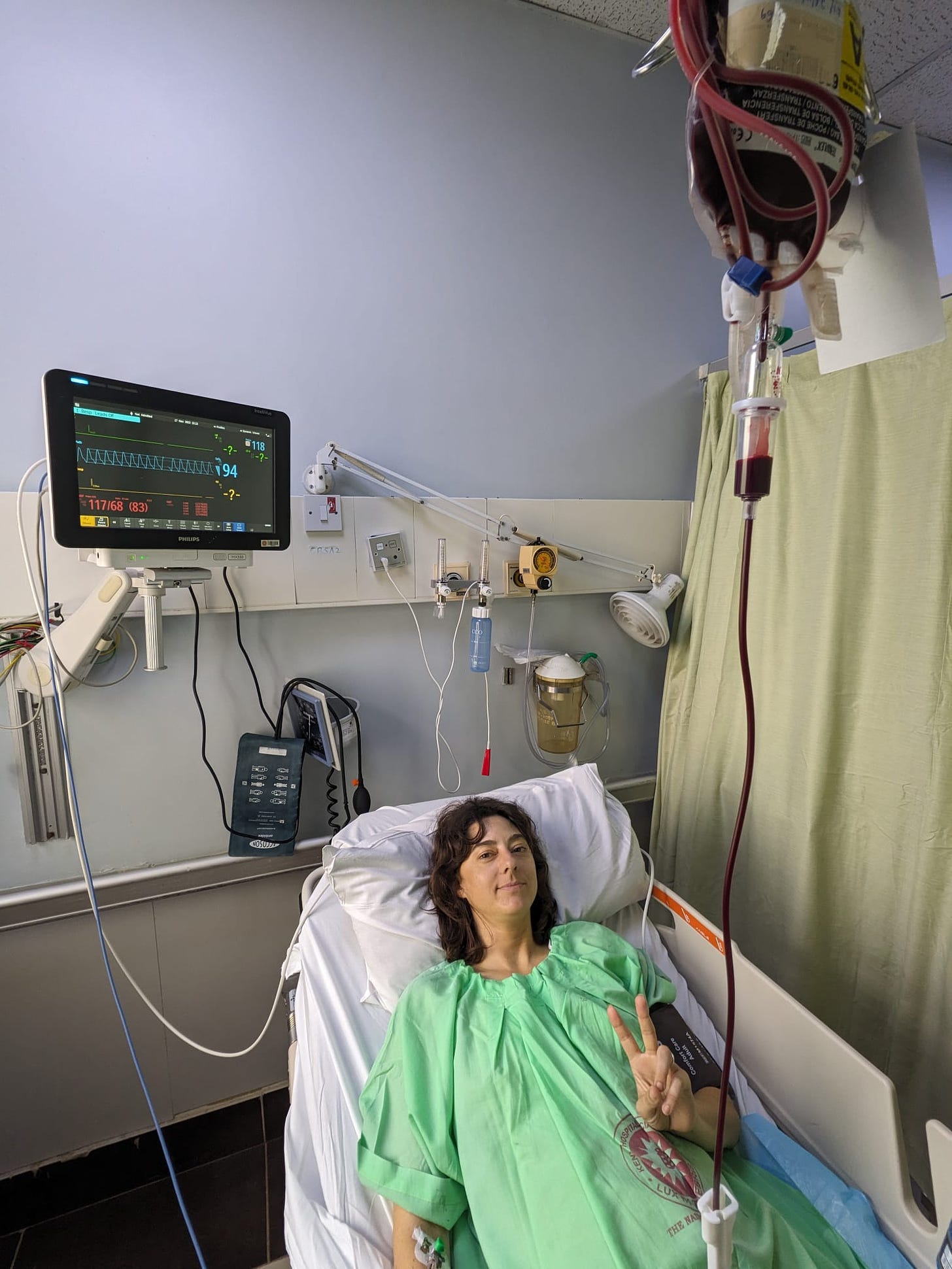
Sunday 19 November
Small wins
Morning routine:
4:30 am - blood test
5 am - vitals check, beep-bloep machine
6 am - night nurses say goodbye
6:30 am - day nurses say good morning
7 am - duty nurse does her greeting rounds
7:30 am - cleaning crew; bedding change
8 am ish - breakfast
In hospital, the small things become everything. This cramped, curtained cube is my universe, and I’m lucky to have a window. Raising the bed brings a good view of the trees beyond the balcony. Staring at the leafy mass with criss-cross eyes, I create stereograms. Remember those '90s books filled with 2D spreads of optical illusions that revealed 3D shapes if you crossed your eyes? A shark shape emerges from the trees before I lose focus and slink back into the duvet.

Today’s small wins:
Gusts of fresh air from the open window 💨
Convinced the nurse to give me pain meds earlier than the other meds ✌️
This IV line is the least painful and the nurses are being gentle 🤗
I have a private bedpan so I can pee whenever I want 🫣
Nurse put the working bed remote within arm's reach so I can control the bed now 🛌
Got a stash of salt sachets from the kitchen to mix into fruit juice and keep my electrolytes balanced. It's not easy getting things in here. This was a big win. 💪
Not winning:
Hb tested 9; Prof insists on at least 11 or 12. They’ll hook up one more pint of blood and release me in a few days.
Bloated again. Sister says she’ll send her bowel movements my way.
Medical curiosity
Two nursing students have asked me to act as a case study in their 2nd and 3rd year exams, respectively. Sweetly and politely they’ve sat me down for a formal interview: Are you married? Do you have children? Why not? Why are you here? How were you treated for malaria? How many units of blood have you received?
Professor Chunge chuckles, “The hospital staff love you because you are a unique case.”
Pole pole (slowly slowly)
The nurses have removed my bedpan, encouraging me to get the new blood circulating. Without aid—a big step!—I roll over onto my side, use the non-IV arm to hoist myself up, reach for slippers and slide off the bed. I’m standing!!
I manage kidogo kidogo (small small) distances unaided, reaching the washroom without much dizziness. Back in ‘normal’ daily life I walk distracted, hardly focusing on the privilege of how easy it is. In contrast, hiking (a big part of non-daily life) is a practice of intentional walking, mindfully aware of my body in space, carefully placing each footstep while tuning in to the landscape.
Malaria robs you of the capacity to walk freely, but it’s giving me a renewed appreciation for simple physical functions.
Walking ability is a way to gauge my recovery: the further and faster I can walk, the better I am. Professor Chunge says that I’ll get back to normality pole pole (Swahili for ‘slowly’; pronounced ‘polay polay’). According to him, I am recovering ‘on African time’.
Monday 20 November
Discharge day, we hope!
Sickypants update: Victory lap! I put shoes on, walked to the bathroom, made a poo, washed my hands and came back... All by myself 😎 Yesterday’s poo juju worked 💩
Biggest win today: Convinced the nurses to swap my bed out from a sinking marshmallow to a sturdy mattress. If I’m discharged today I won’t get the chance to sleep in it, but it’s life-changing nonetheless.
More fever, more malaria?
Since finishing malaria treatment I’ve had daily fevers—a warning sign for infection or another strain of malaria.
Anxiously, I check my temperature every hour or so; waiting a long two minutes for the thermometer result is agonising. Am I still fevering? Why am I so hot?? Anything above 37°C signals fever. In the early days I was a dangerous 39°+ but these days the average is 37.5-38°C. Still too hot to handle.
On Saturday Prof prescribed the strong antimalarial Premaquine to treat any sneaky malaria hiding in my system. The present fever provides peace of mind (no malaria; Premoquine does not fail), but also more anxiety: What’s wrong with me?
Malaria affects the body’s entire defence system. Often, bacteria go undetected as the white blood cells deployed to fight them show no reaction.
“If your blood is already tortured, it cannot tell us that there are bacteria around because your immunity is too low.” Professor Chunge
Prof believes the infection to be a result of bacteria from within the body—for example from the gut—a possible side-effect of the bloating. A swelling, unmoving gut risks bacteria sneaking into the bloodstream. I’m horrified.
Haemoglobin head
According to Husband and Sister my crossword game is on point, but I’m having serious bouts of haemoglobin head: sudden faintness as if my head is tipping over and pouring all the blood out.
Human bodies have a reserve function for oxygen; when lacking, your body can pull from the lungs and brain. Anaemia strips the reserve supply, so during recovery it’s common to feel fatigued while while the tanks are refilled.
A sombre reminder from Prof about the risks of malaria and anaemia:
“Anaemia kills. If your blood drops to 4% you can die. You have reached 5. And you know how you die from malaria with anaemia? You peacefully go to sleep as if you are being anaesthetised. You become tired and sleepy and fall asleep and never wake up. You have experienced almost something like that, but you are out of the woods now. I’m glad we stopped you from flying. Up there in the air you would have died.” Professor Chunge
Blood transfusions can now stop as my Hb is a healthy 11.5; there is a danger of over-transfusion, risking iron-overload.
My body must now produce its own blood again, and I fear a repeat of last week, where my system was destroying blood faster than creating it.
Prof eases my catastrophic imagination with a medical explanation for why there is no risk of the same happening again. I’ll butcher the medical accuracy but this is how I understood it: A blood platelet count is an indication of the bone marrow’s ability to create blood. A healthy platelet count is 150-450 (don’t ask me what this means). When originally admitted my platelet count was 51, meaning my body wasn’t functioning sufficiently to make blood. It’s risen now to a healthy 162-168.
During Prof's daily update, he casually notes we'll check my liver tomorrow morning along with the regular blood count. My jaundice is a pale mellow yellow; the liver was hit by the malaria.
A liver test means at least one more night in hospital. The mature side of me reluctantly squeezes out, “I’ll stay until I’m healthy, it’s good to be surrounded by medical professionals”. The child in me is curling up and crying.
Tuesday 21 November
This week I was meant to write a magazine article. I had a meeting scheduled with the R&D Director for one of the world’s biggest producers of medicinal mushroom products. My career coach is holding me accountable for a research grant application. I should be foraging the final weeks of UK mushroom season. Instead, I’m dealing with a leaking IV.
Help! Is it supposed to this?!
The IV in my right elbow has leaked through two dressing changes. It’s horrifying and fascinating; I’m freaking out but also firing questions at the nurse: What’s that plastic tube thingy? How far into the arm does it go? How does it stay there? How does the tap work? How doesn’t it break out of the vein?
To prevent infection, IV connections should be changed every three days. My new dressing indicates removal by 3 pm today. My sanity can’t comprehend another drip insertion after countless needle pokes.
Like many, my needle-phobia is rooted in childhood trauma, but it’s evolved into something weirder. The needle placement freaks me out; my brain zooms into a macro image of skin cells laid out like cracked puzzle mud, reminding me of that scene in The Land Before Time, ‘Don’t step on the crack, or you’ll fall and break your back’.
The needle cannot pierce a crack.
Today presents a dilemma: if the IV must be removed at 3 pm and I require more blood or medication, a new line will be necessary. Inspecting my arms closely, the recurring needle trauma makes it difficult not to cry. Every pokeable space on my forearms, wrists, hands and elbows feels violated. As a petite person, the physical scraping of plastic tubing against my wristbone is real.
The tension rages: the life-saving IV line, must it be so traumatic?
Consulting with Prof Chunge, no more blood transfusions are required, but one more round of antibiotics is needed. We weigh up the options:
New IV line, stay for two more nights, give antibiotics tonight, or
Orally-administered antibiotic which is less effective, or
Give the final antibiotic earlier than scheduled and risk infection on the IV line.
Option 3 is the winner. This IV can be removed later today and we won’t need another prick. I’m embarrassed to cry in the presence of Prof, but breaking down in sobs at this news is a raw and uncontrollable reaction.
Hb Hb Hb Hb
Two days since my last blood transfusion, today's Hb has dropped to 10.8. Prof likens it to topping up oil in a car—you need to run the engine a bit for an accurate reading. It shouldn't drop further though, so we’re hoping for a higher test reading tomorrow to be discharged.
The mycelial network of family and friends has been enlisted to cross their fingers and toes so that I can come home.
Wednesday 22 November
No energy for a diary entry today. Our morning was rough: a false alarm Hb reading had us stressing for ages before consulting with the hospital’s head Hematologist, who, together with Professor Chunge, was happy to discharge me today.
I’m ecstatic, anxious and exhausted. Crashing on the AirBnb couch.
Thursday 23 November
We fly home to London tomorrow but I’m still feeling fatigued with haemoglobin head. For peace of mind we visited the Centre for Tropical & Travel Medicine for a final Hb check; flowers and Thank You card in hand. Prof’s wife Dr. Ruth Chunge runs the CTTM lab, and has been a generous, gentle, nurturing, comforting and encouraging presence through this ordeal.
My blood is happy, so Dr. Ruth is happy. She declares me fit to travel home. Yayyyy!
The CTTM team have held Husband and I, supporting us emotionally as well as medically since early November. I’m so grateful to them, and make a mental note to keep them updated on the recovery process of my medical curiosity.
Tomorrow’s journey feels less ominous with a happy blood count, and I’m stoked to be heading home for the final stage of healing.
This has been my worst ever visit to Kenya, but I can’t wait to come back to continue the work that was interrupted. Kenya’s mushrooms are waiting!
Thanks for reading. You can find the other chapters here:
CHAPTER 1 | CHAPTER 2 | CHAPTER 4
Mush love, Jess 🍄❤️






